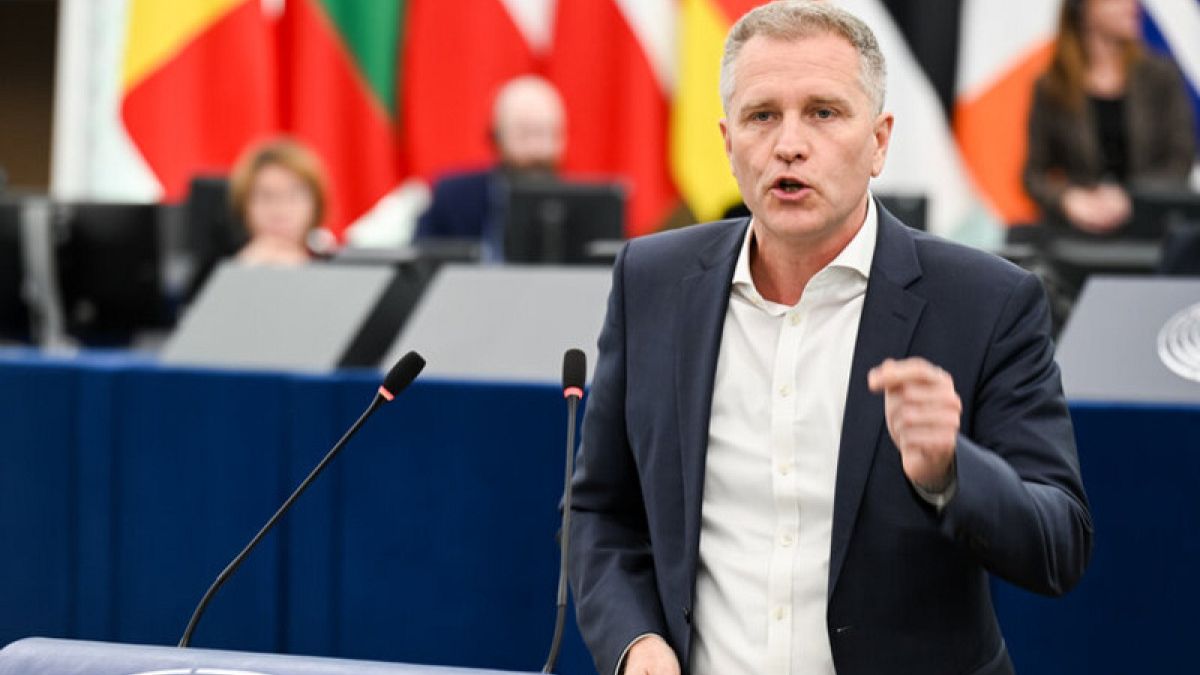A German member of the European Parliament accused of receiving bribes to support the Russian Government was stripped of his parliamentary immunity on Tuesday.
Alternative for Germany’s Petr Bystron has several criminal proceedings underway at the Munich Public Prosecutor’s Office, with accusations dating back to his term as member of the German Parliament.
Bystron is suspected of having received cash payments in person or cryptocurrency transfers from the pro-Russian website ‘Voice of Europe’, in return for his commitment to speak and vote in the interests of the Russian Government.
His name appeared along with other far-right MEPs in an investigation on Russian influence over the European Parliament through the media outlet, which is now proscribed.
He reportedly deposited considerable sums in an ATM in 2023 into an account belonging to a company of which he is the sole shareholder and manager, and then withdrew the same amount of money. Other suspicious movements were registered in July 2021, April 2022, September 2022, and in June and July 2023, according to the European Parliament’s report on the case.
Bystron is also accused by German authorities of passive corruption, money laundering, fraud and tax evasion. He allegedly submitted incorrect VAT returns and allegedly hired his lawyer as parliamentary assistant, and is accused of defrauding the German public to the tune of more than €97,000.
The plenary session of the European Parliament in Strasbourg decided to waive his immunity by an overwhelming majority on a show of hands, such that a tally was not needed.
“The plan to remove my immunity is not a lawful procedure but a targeted political manoeuvre,” Bystron said in a statement. He said the move arose from a campaign involving the news platform Voice of Europe and targeting several politicians who have been among the most outspoken opponents of the war in Ukraine. “The public prosecutor should not be investigating the victims of this campaign, but rather the masterminds behind it,” said Bystron.
“The AfD delegation views the process as politically motivated and sees it as an attempt to discredit a committed European politician,” the Europe of Sovereign Nations group – to which the Alternative for Germany delegation belongs – said in a statement.
“We have not found evidences of a political persecution against him”, the rapporteur for Bystron’s waiver of immunity, French MEP Pascale Piera, told Euronews.
How does MEP immunity work?
This vote clears the path for German authorities to investigate Bystron and, if they consider it appropriate, place him under arrest.
It is the third request for waiver of immunity for the German lawmaker: one was approved by the Parliament on 1 April and another is ongoing in the Parliament’s Committee on Legal Affairs (JURI).
Waiver of immunity does not constitute a guilty verdict, merely a procedural step to allow judicial procedure to proceed, a European Parliament spokesperson said.
Before any legal proceedings can be launched against a sitting member of the European Parliament, investigative authorities must ask for a waiver of parliamentary immunity.
Parliamentary privilege is intended to restrain any unauthorised judicial action and protect MEPs from arbitrary political prosecution, but is not designed to put MEPs beyond the reach of the law.
They cannot claim immunity when they are caught in the act of committing an offence, and their immunity can be lifted after a (double) vote by their colleagues.
When a national authority submits a request to the chamber, the Parliament’s president announces in plenary and refers it to the Legal Affairs Committee (JURI).
The committee investigates by asking for any information or explanation that it deems necessary and the MEP in question is given an opportunity to be heard, and may present any documents or other written evidence.
Following this internal investigation, the JURI Committee makes a recommendation on whether to approve or reject the request to lift the MEP’s immunity. The final word is for the European Parliament as a whole: so far eight waivers of immunity have been voted by the plenary in this legislature.
There is no pre-defined timeline for the entire process, as each case is individual with its own distinct features.
Read the full article here


